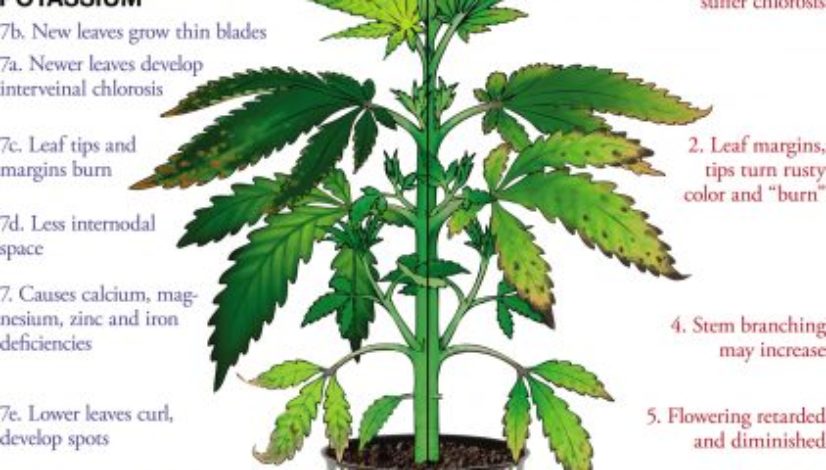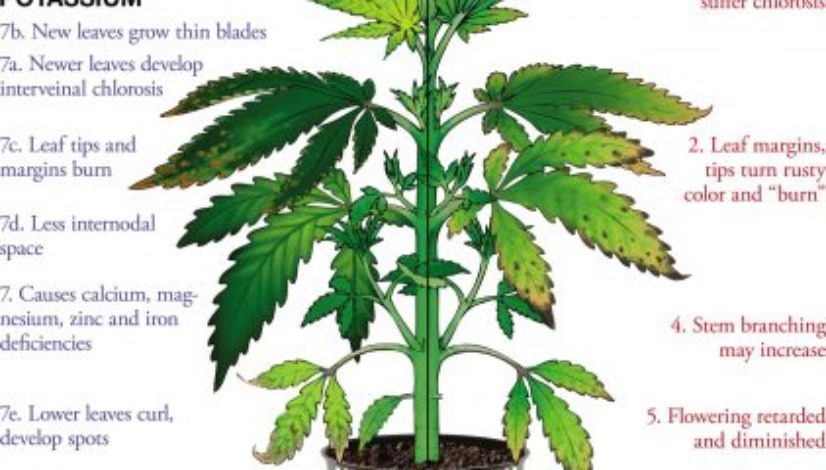Majoring in cannabis: New four year degree puts students on the cutting edge of the industry

Published: Oct 23, 2017, 8:15 am • Updated: Oct 23, 2017, 8:15 am
By Amber Ferguson, The Washington Post
When Alex Roth’s mother sent him an article announcing a new degree program being offered at Northern Michigan University, the sophomore immediately switched his major. Roth is now majoring in cannabis.
The program, Medicinal Plant Chemistry, is the first program to offer a 4-year undergraduate degree focusing on marijuana, according to Brandon Canfield, the associate professor of chemistry who started the program.
“When my friends hear what my major is, there are a lot of people who laugh and say, ‘wow. Cool dude. You’re going to get a degree growing marijuana,” Roth told The Washington Post. “But it’s not an easy degree at all.”
The former environmental studies major won’t be getting high in class or growing his own plants. Instead, his required courses include tough subjects such as organic chemistry, plant physiology, botany, accounting, genetics, physical geography and financial management.
Twenty-nine states, including Michigan, have legalized medical marijuana. Eight states and the District of Columbia have legalized small amounts of marijuana for adult use, according to the National Conference of State Legislatures. Forbes projects the sale of recreational marijuana to jump to $11.2 billion by 2020. “I want to be on the forefront of this industry and be a part of the normalization of marijuana,” Roth said.
Several accredited colleges and universities offer credit and noncredit courses in marijuana. The University of California at Davis has an undergraduate course on the Physiology of Cannabis, the University of Denver offers a course on the Business of Marijuana and Vanderbilt’s law school has Marijuana Law and Policy course. Oaksterdam University in Oakland, California, calls itself America’s first cannabis college, but offers a certificate rather than a college diploma, according to its website.
Related stories
- Michigan university launches degree program in marijuana science, business
- Georgia Tech sports teams consider changes to policies on marijuana and other drugs
- Fearing feds, pharmacy school cancels classes on growing medical marijuana
- Key first step for Louisiana medical marijuana: Grower approved for LSU
- Legalization trend: College students using more marijuana, study finds
But Northern Michigan University in Marquette is the first to offer a degree in the sprouting field.
“The historical stigma associated with cannabis is quickly vanishing,” says the school’s website, “and although there is a surge in businesses related to the marijuana economy, there is a major gap in educational opportunities available to prepare people for this field.”
Canfield told The Post to think of it as getting a science degree with a minor in business. He said he got the idea to start the major last year after attending the National Conference of the American Chemical Society where there was an official cannabis chemistry division.
During the conference, he learned about the increasing need for trained professionals in the medical cannabis industry and developed the curriculum with a group of his colleagues.
Once university officials learned that the program would focus primarily on laboratory analysis and chemistry of cannabis, he said there was really no backlash. The school began publicizing the program in March. Since then, about a dozen students have officially declared in the major. Canfield said some students heard about the program and transferred to NMU over the summer.
“We’re receiving all sorts of calls and emails expressing interest in the program from retirees all the way down to your traditional first-time freshman,” Canfield said.
One required course, appropriately titled Chemistry 420 (in honor of the unofficial so-called “pot holiday,”) is an advanced analytical course where students study various classes of bioactive compounds and their plant origins and metabolite chemistry. The syllabus includes the history of medicinal plant use and cannabis chemistry, along with a lab in which students will perform plant tissue extraction for alkaloids and terpenoids and study purification procedures of different plants.
Next semester a 50-minute seminar series course will be offered for the first time for students in the major to come together to discuss current issues or trends in the cannabis industry, including legal issues and economic trends.
Students will be required to choose a recent article on medicinal plant chemistry and lead a discussion on it. In week six a guest speaker will talk to the class on entrepreneurial opportunities in the field.
Roth said he was attracted to the major after seeing a family friend with a two-year-old daughter suffer from a rare genetic mutation. Once the child started using nonintoxicating cannabinoid (CBD) her seizures decreased and quality of life increased. He said he wants to “be part of a whole new side of science and normalize marijuana.”
Roth’s roommate, Benjamin Ritter, also switched his major to Medicinal Plant Chemistry. He said his mother has multiple sclerosis and also takes CBD to manage her symptoms.
“I think it’s going to be a lot of work but I definitely think it’ll be worth it. I really want to help patients,” Ritter said.
Canfield said he thinks more programs like this will be popping up around the country soon. “It’s kind of a taboo subject and the response we’re getting is that a lot of people are interested in actually pursuing legitimate educational programs focused on [cannabis] . . . As the legality increases there will be more opportunities for peer-reviewed research.”
Canfield said upon graduating from the program students will be qualified to work in a number of different laboratory positions. They could choose to open their own dispensaries or go on to work with the medicinal and therapeutic properties of marijuana.
Despite not being able to handle actual marijuana on campus, there are still opportunities for NMU students to handle the plant offsite.
“We’ve got a long list of licensed Michigan businesses who want to take our students for internship programs,” Canfield said.
Learn more
(video by Amber Ferguson/The Washington Post)
Topics: cannabis cultivation, college, education, marketing, Michigan, university




